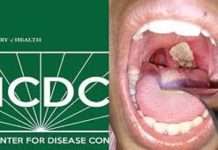It appears Pharm. (Mrs.) Juliana Nyiyam Agbatse, chairman, Benue State Association of Lady Pharmacists (ALPs), has answers to the ongoing controversy on how to regulate the practice of herbal practitioners, who churn out herbal drugs for the society without accurate dosage.
Agbatse, who is also the assistant director, pharmaceutical services, with the Benue State Ministry of Health, has opined that ALPs, as a group of women scientists, can embark on the development of medicinal plants, in partnership with research institutes, to the benefit of the masses.
Agbatse, who spoke with Pharmanews in an exclusive interview, said ALPs can achieve more success in the production of herbal remedies than the traditional herbal practitioners, adding that the group can focus on plants with antimalarial substances and work on them, for the reduction of malaria burden in the country.
In this interview with Temitope Obayendo, Agbatse reveals more on how ALPs can achieve this goal.
Could you tell us about yourself and your background?
I am Pharm. (Mrs.) Juliana Nyiyam Agbatse (JP)(MAW). I was born into the family of late Pa Shar Kunde and late Mrs. Kumamyol Shar in Shangev Tiev District of the then Gboko LGA, now Vandeikya LGA, in Benue State.
I had my primary education at the RCM Bature, Shangev-Tiev, from 1971 to 1977; attended Queen of the Rosary secondary school, Gboko, where I completed my secondary education with good grades between 1978 and 1982. I could not go ahead with my education but got married to Mr. Benjamin B. Agbatse of Mbatiav, Gboko LGA in 1982.
Thereafter, I was admitted for a remedial program at the University of Jos in 1986. Eventually, I gained admission to study Pharmacy in 1987 at the University of Jos, and completed the programme with a Bachelor of Pharmacy (B. Pharm) in 1992.
In 1995, I returned to the Ministry of Health and changed cadre from clerical staff to the Pharmaceutical Services Department. I rose through the ranks from pharmacist 1 and I am currently an assistant director, pharmaceutical services, with the Benue State Ministry of Health.
As a lady pharmacist, I joined the state branch of the Association of Lady Pharmacists (ALPs) in 1995. I was made the state secretary in 1998 – 2006; then the vice chairman in 2008 – 2010. I was then elected chairman of ALPS Benue State from 2010 till date. Before being elected as chairman, I was the secretary of Girl Child Project Committee. I was honoured with the ALPs Merit Award at the just concluded ALPs Biennial Conference in Port Harcourt by the national ALPs.
As the Benue State chairman of ALPs, how would you describe ALPs performance at the last PSN conference at Abeokuta?
The performance by ALPs at the opening ceremony of the PSN conference at Abeokuta was commendable.
Aside from the usual activities of the group, what are the projects the body wants to execute this year?
ALPs national wants all state branches to get more committed to Project 91, whose focus is on research on plants with medicinal and cosmetic value. At my state level, in addition to this which we already started working on, we have put in place a plan to engage in massive career education of secondary school students across Benue State, alongside talks on drug abuse and HIV/ AIDS, which we have not been so involved with.
Benue State ALPs will be picking the fourth girl child to sponsor through secondary school. We pick one at a time. Under the girl child training program, ALPs Benue will select two girls by the second half of the year and sponsor them to be trained in any trade of their choice. We picked one last year and sponsored her to learn tailoring. She completed the training and we bought her a sewing machine, and she is running her small shop at the moment in Ikpayongu settlement in Benue State.
As women, do you think your members can do well in plant research to the benefit of their patients?
Yes, I think we can do well in plant research. Remember that not every ALPian will be involved in research, but many will be involved in planting of the plants. Remember, also, that research on plants can be done at various levels, in collaboration with research institutes, to achieve the expected results. ALPs will collaborate with relevant establishments like the Pharmaceutical Research Institute (NIPRID), Nigerian Medicinal Plants Development Company (NMPDC) and others, both within and outside Nigeria, to achieve our aim. Not all research will be directly for the benefit of our immediate patients, but for the development of drugs and cosmetic products in the long run.
In what ways do you think ALPs can help in achieving the health components of the MDGs?
There are three components of the MDG that are health-related. They include: reduction of child mortality, improvement of maternal health and combating HIV/ AIDS, Malarial and other diseases. In the recently concluded ALPs Biennial Conference, which was held in Port Harcourt, the conference topic was: “Safe medicines, the roadmap to child and maternal health”. This topic was well presented by the keynote address speaker and properly deliberated upon by professionals who are directly involved in handling women and children. New ideas were shared among the professionals and ALPians rose from the meeting with new and better ways of handling this group of patients in their various places of work.
ALPs has engaged in talks on HIV/AIDs to sensitise teenagers and the general public that AIDS is real and can be avoided in all the states.
An ALPs member is currently the chief executive of the NMPDC, which has succeeded in domesticating artemisia annua, the antimalarial plant.
ALPs, through Project 91, can develop plants of medicinal value of local indigenes that would help members of the public, since we are scientists and would do better in standardising herbal drugs, as compared to traditional herbalists.
ALPs could work with traditional herbalists to train them on standardisation of herbal collections, so that those that receive treatment from them will get the best, in terms of quality of the active ingredients in the herbs collected.
What are the challenges of ALPs in the state and how could these be resolved?
The challenge of ALPs in Benue State is the low numerical strength, which is mainly due to the fact that lady pharmacists are few in the state, but also due to the fact that some are not willing to participate in ALPs activities. This leads to low financial muscle and inability to effectively execute planned programmes. We have started developing a bulletin or pamphlet that will carry our activities in pictorial form, and we will distribute them to all ALPians in the state and even to the larger society. We hope this will encourage the ladies to be part of the success stories, and the society to reckon with our efforts in serving the Benue community. ALPs is about giving service to improve the lives of people.
What is your advice to all pharmacists across the nation?
I advice all pharmacists to know who they are: members of the only trusted profession. We must be proud of this profession. We must therefore live above board, giving service to our unsuspecting clients in a way and manner that will uphold the ethics of the profession. We must not think of copying bad actions and behaviours of many who have infiltrated the profession and are peddling fake and adulterated substances in an uncoordinated manner, thus making monitoring and supervision very difficult for those involved in safeguarding the health of the nation. We must all partner with the government to achieve the full implementation of the new national guideline on drug distribution, which is the answer to fake drugs, open drug markets and chaotic drug distribution.
Could you list some of the offices you have held before?
In the service of Benue State Government as a pharmacist, I have been appointed to the following positions of responsibility:
- Member/ secretary, State Task Force on Fake and Counterfeit Drugs
- Member/ secretary, State Drug Abuse Control Committee
- Member, Pharmaceutical Inspection Committee
- Member, State Committee on Review of Registration of Business Premises
- Member, State Ministerial Security Committee of the Ministry of Health
- Essential drug program manager, Benue State EDP
- Member, Technical Team on the Establishment of the Benue Bulk Medical Store, now known as Essential Pharma Limited, Makurdi
- Procurement and regulatory affairs manager, Essential Pharma Limited, Makurdi
- General manager / chief operations officer, Essential Pharma Limited, Makurdi
As a pharmacist, I was elected into various positions of responsibility, serving on several committees in service to the Pharmaceutical Society of Nigeria. They include:
- Treasurer, PSN Benue State
- Assistant secretary, PSN Benue State
- Treasurer, NAHAP Benue State
- Secretary, Pharmacy Week Planning Committee (1999)
- Member, Pharmacy Week Planning Committee (2012)











BENJAMIN OR BENJO WAS MY ROOMMATE FOR SEVERAL YEARS AT CAMPBELLSVILLE, KY. WE SHARED MANY EXPERIENCES. HE WAS IN MY WEDDING TO MY WIFE CATHY IN 1978. I NOW LIVE IN CORBIN,KY. I ALWAYS WONDERED WHERE HE WENT TO AFTER COLLEGE. I HAVE DONE WELL IN LIFE AND I HOPE HE HAS ALSO. WE BOTH SHARED 2 ROOMS WITH ANOTHER CLASSMATE NAMED DAVE BRANDON. HE NOW LIVES IN ELIZABETHTOWN KY. I WOULD LIKE TO HEAR FROM BENJO IF POSSIBLE. WE WERE VERY CLOSE FRIENDS . WILLIAM SMITH R.Ph BS BIOLOGY,CHEMSISTRY,PHARMACY
You can reach her on her email address- julieagbatse@yahoo.com.Thanks for reading, share more of our stories with your friends on facebook and twitter.
I would love to be in contact with Mrs. Agbatse. My husband and I were in school with Benjamin Benjo Agbatse in Campbellsville, Kentucky in 1978. He was a dear friend. Please email me if at all possible. I am also a pharmacist and found this article very interesting.